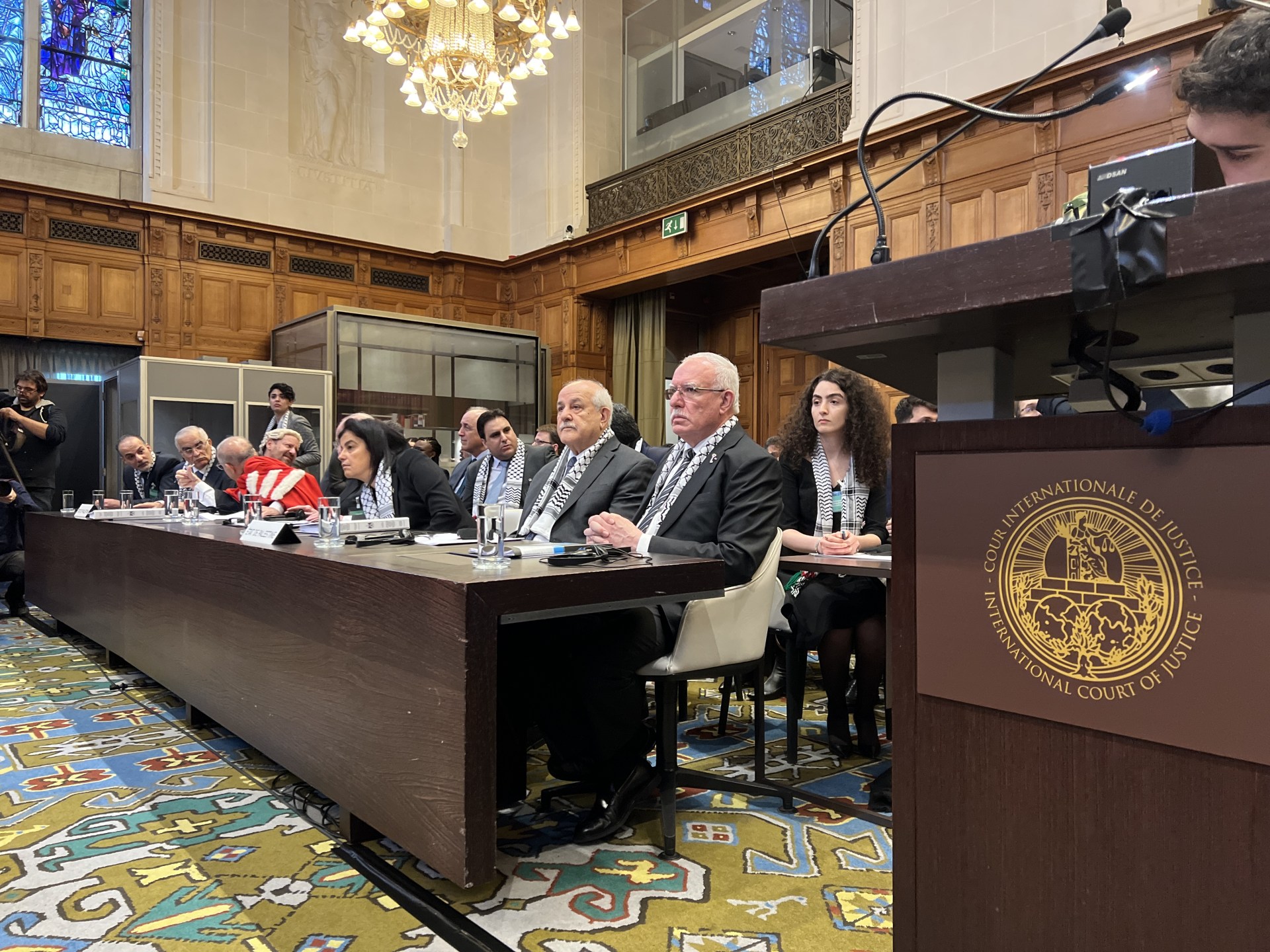The Palestinian team, headed by Palestinian Foreign Minister Riyad al-Maliki, began hearings at the International Court of Justice in The Hague (Anatolia)
Palestinian Foreign Minister Riyad al-Maliki said on Monday before the International Court of Justice that Israel is committing genocide in the Gaza Strip and has been implementing a policy of apartheid against the Palestinians for years.
Al-Maliki added, at the beginning of the week-long hearings held by the United Nations court in The Hague on the legal consequences of the Israeli occupation of the Palestinian territories, that “allowing the genocide to continue is unacceptable,” stressing that “there is a moral and legal obligation to put a quick end to it.”
Al-Maliki also stressed that the Israeli occupation must end without conditions, and said that the Palestinian people are being denied their right to existence and self-determination, and it is necessary to stop the occupation practices and for international law to prevail.
The Palestinian Foreign Minister considered that Palestine is still the biggest test of the credibility of the international system based on laws, and humanity cannot bear failure in it. He called on Al-Maliki not to let the Palestinian people down at this stage.
He said that Israel left the Palestinians with only 3 options: either displacement, arrest, or death, considering that Israel is defying the order of the International Court of Justice to prevent acts of genocide in Gaza. He said that the genocide that occurs in Gaza is the result of the absence of punishment and accountability for Israel.
Al-Maliki added that Israel expelled two-thirds of the population from their lands at the beginning of the Nakba, then occupied more lands, and called on the countries of the world to put an end to the double standards that the Palestinian people suffered from, stressing the Palestinians’ right to self-determination.
Al-Maliki (right) said that Israel left the Palestinians with only 3 options: displacement, arrest, or death (Anatolia)
Palestine Legal Team
The legal team for Palestine said at the hearing that Israel refused to commit to negotiating with the Palestinians on the basis of United Nations resolutions, and confirmed that Israeli Prime Minister Benjamin Netanyahu refused on three consecutive occasions to recognize a Palestinian state, and insists on one state.
He said that Israel continues to settle, and is working to control the West Bank lands and call them Judea and Samaria. He stressed that it is also working to permanently remain in the occupied territories by establishing and expanding settlements, noting that 61% of the West Bank lands are threatened by Israeli settlement or are under it.
The Palestine legal team also said that the recent events in Gaza have repercussions affecting security, and considered that the court’s opinion is important in this case.
It is expected that the hearings will witness the presence of representatives from more than 50 countries, including America, Russia, and China (Anatolia)
50 countries
It is expected that the hearings before the International Court of Justice will be attended by representatives of more than 50 countries, including the United States, Russia and China.
These sessions come based on a previous request submitted by the United Nations General Assembly in 2022, in which it asked the court to issue an advisory (non-binding) opinion on the Israeli occupation. This is the second time that the United Nations General Assembly has asked the International Court of Justice to issue an advisory opinion related to the occupied Palestinian territories.
These hearings are completely separate from another case brought by South Africa, in which it says that Israel is committing acts of genocide during the current aggression against Gaza.
The International Court of Justice ruled in this case on January 26 that Israel must do everything in its power to prevent genocide and allow humanitarian aid to enter Gaza, but it did not go so far as to order a ceasefire.
Last Friday, the court also rejected South Africa's request to impose additional measures on Israel, but reiterated the need to implement the ruling in full.
Source: Al Jazeera + agencies

